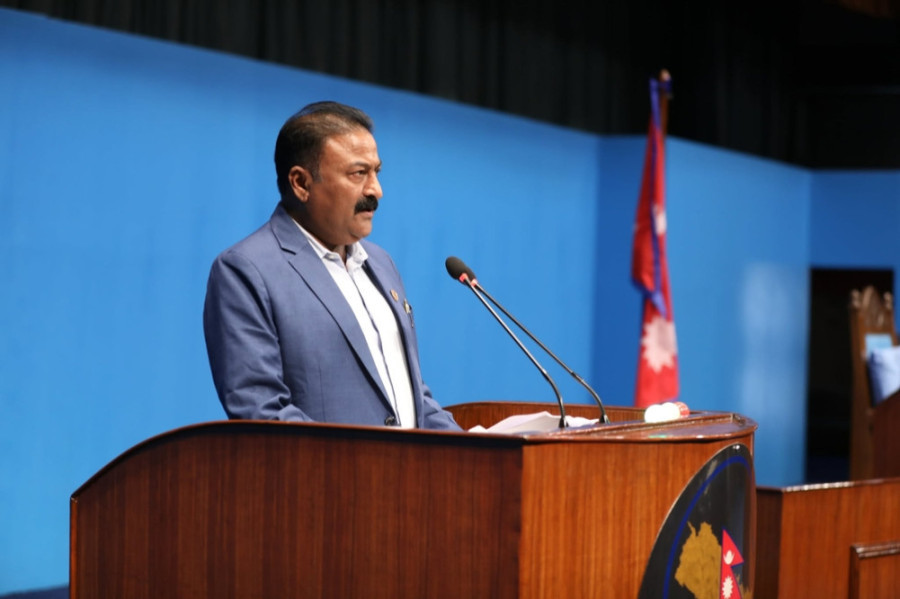Editorial
Maze of scandals
The surfacing of one after another corruption case is adding to public disenchantment with politicians.
How many scams have surfaced from inside the federal government in the past few weeks? Many may scratch their heads as they struggle to remember the cases from the past few weeks, let alone months. To end prolonged deadlock in parliament or douse people’s anger, the government invariably forms a probe panel. On Monday, July 15, CPN-UML lawmaker Raj Kumar Gupta resigned as minister of federal affairs after an audio clip was leaked, linking him to a bribery case. Those heard in the leaked audio also allege another incumbent minister Balaram Adhikari and former minister Ranjita Shrestha of being involved in the bribery. Following Gupta’s resignation, strong voices have been raised for a thorough investigation. Separately, on July 15, the Nepal Police formed a special team to investigate and identify the persons involved in suspected trafficking of some individuals to Spain under the pretext of participating in a United Nations conference in Seville, Spain, from June 30 to July 3. The government was compelled to investigate the matter after opposition lawmakers dragged Prime Minister KP Sharma Oli, who was also attending the event, into the scam.
A Cabinet meeting on July 14 formed a three-member inquiry committee under former high court judge Krishna Giri to investigate suspected cheating in the appointment of Sharad Ojha as chairman of the Nepal Insurance Authority. Before that, on July 7, the parliament formed a seven-member panel to probe the tampering of the ‘cooling-off period’ provision in the Federal Civil Service Bill. The Cabinet meeting on June 23 formed a panel led by former chief secretary Shankar Das Bairagi to investigate the visit visa scam. The government was forced to form the panel after opposition lawmakers obstructed parliamentary proceedings, demanding action against those involved in sending hundreds of people abroad on visit visas in exchange for large sums of money. They even demanded the resignation of the home minister.
Leaders from all three major political parties—the Nepali Congress, the CPN-UML and the CPN (Maoist Centre)—have been implicated in major scandals such as Bhutanese refugee scam, public land grabbing, gold smuggling and other corruption cases. Former prime ministers Madhav Nepal and Baburam Bhattarai, who were considered relatively clean, have also been dragged into different land scams. New political forces such as the Rastriya Swatantra Party and Nagarik Unmukti are no different either. The chief of the RSP, which quickly rose in electoral politics by promising to eliminate corruption from the country, is in judicial custody on charges of embezzling tens of millions of rupees deposited in cooperatives.
This string of cases shows how corruption is deeply entrenched in our society and governance structure. People rightly believe that often, the formation of these probe panels is no more than attempts to douse the immediate public anger—and not to get to the bottom of the matter. Public frustration is mounting. In order to capitalise on this frustration, forces that are unhappy with the current federal democratic republic system argue that the new system is the problem. Some of them even try to make a case for a ‘benign dictatorship’. The question is: do the architects of the federal republic see the writing on the wall? If not, not only will the country’s democratic values be under threat. The mainstream political parties, the architects of the post-2006 democratic dispensation, will also face an existential crisis.




 17.12°C Kathmandu
17.12°C Kathmandu













